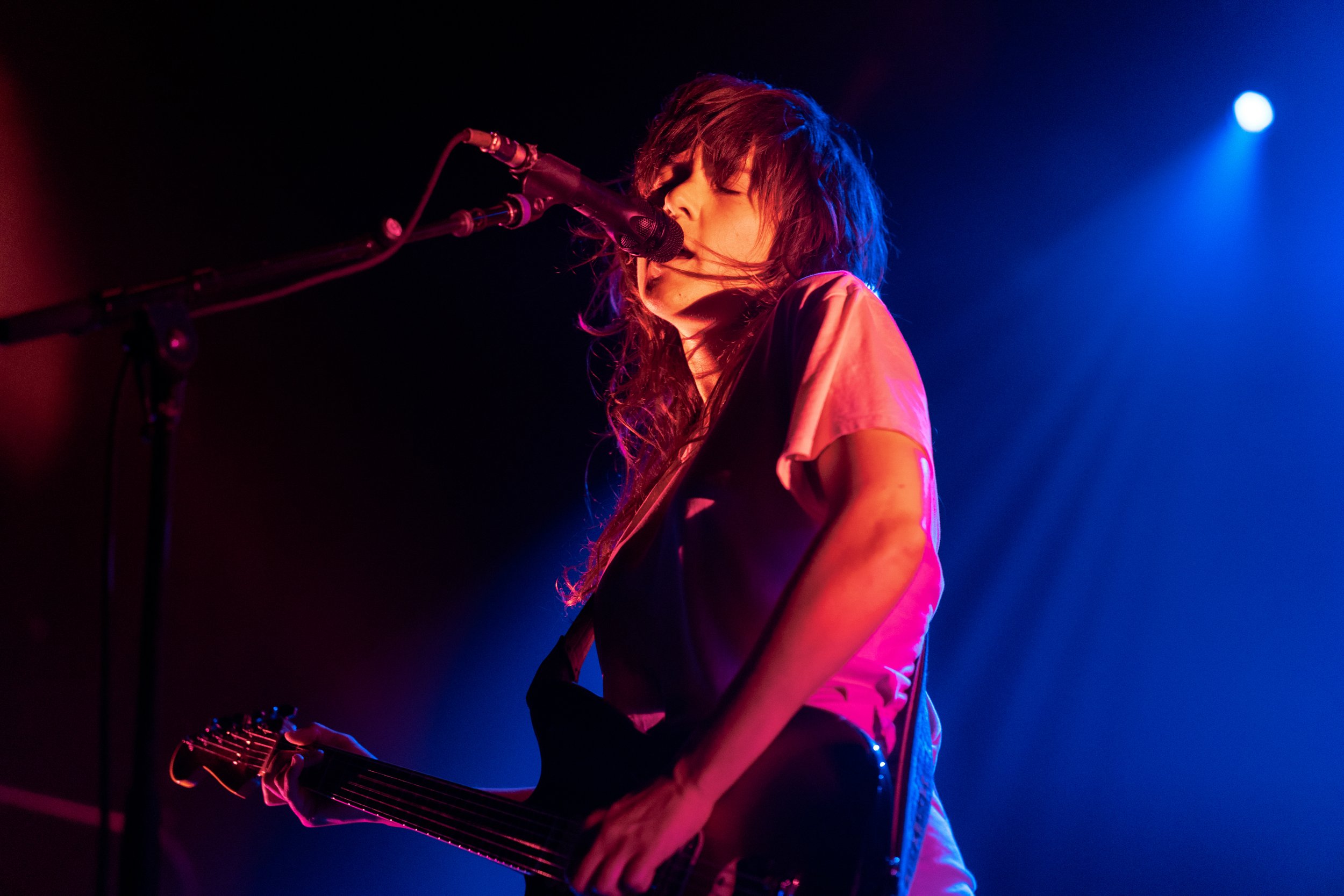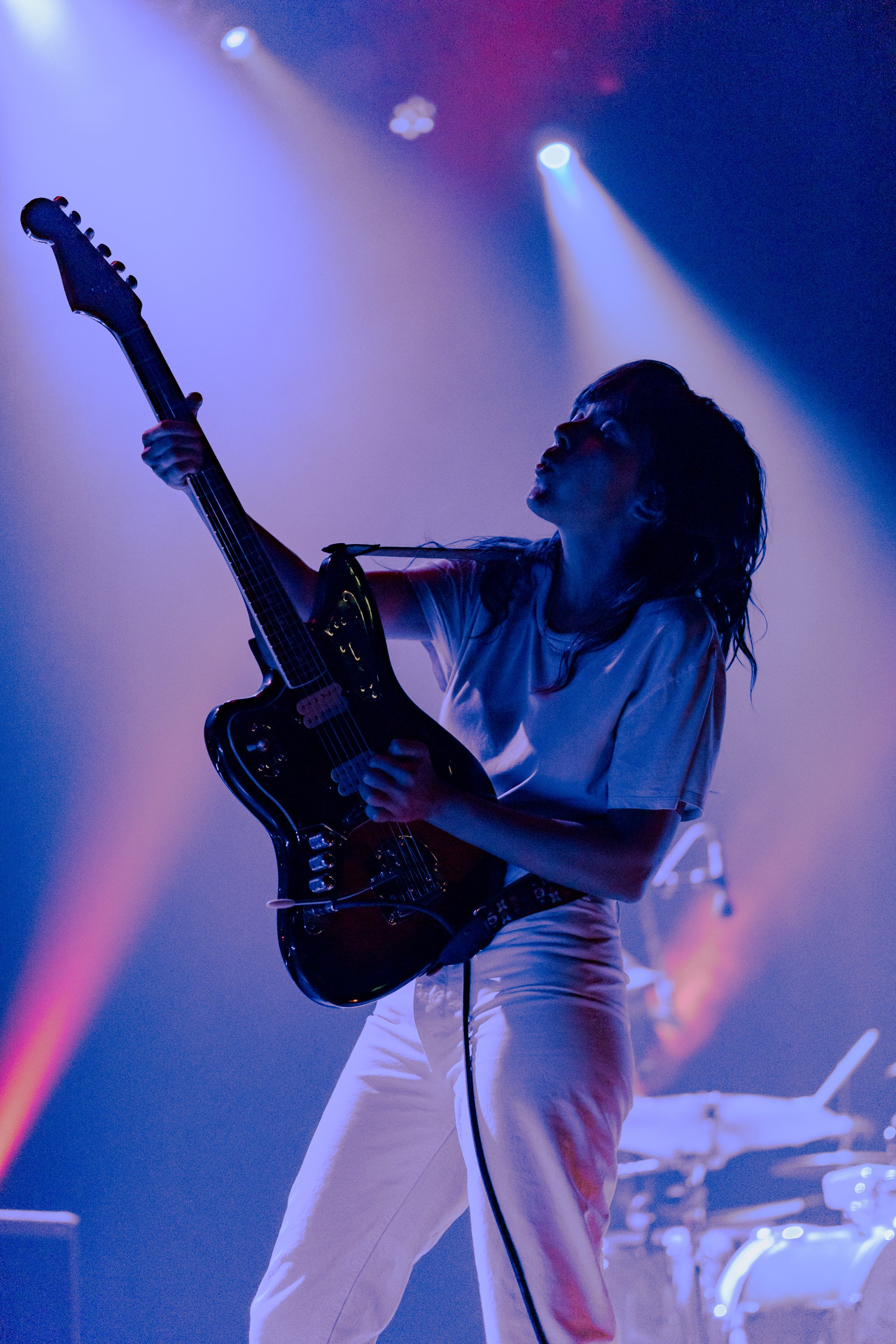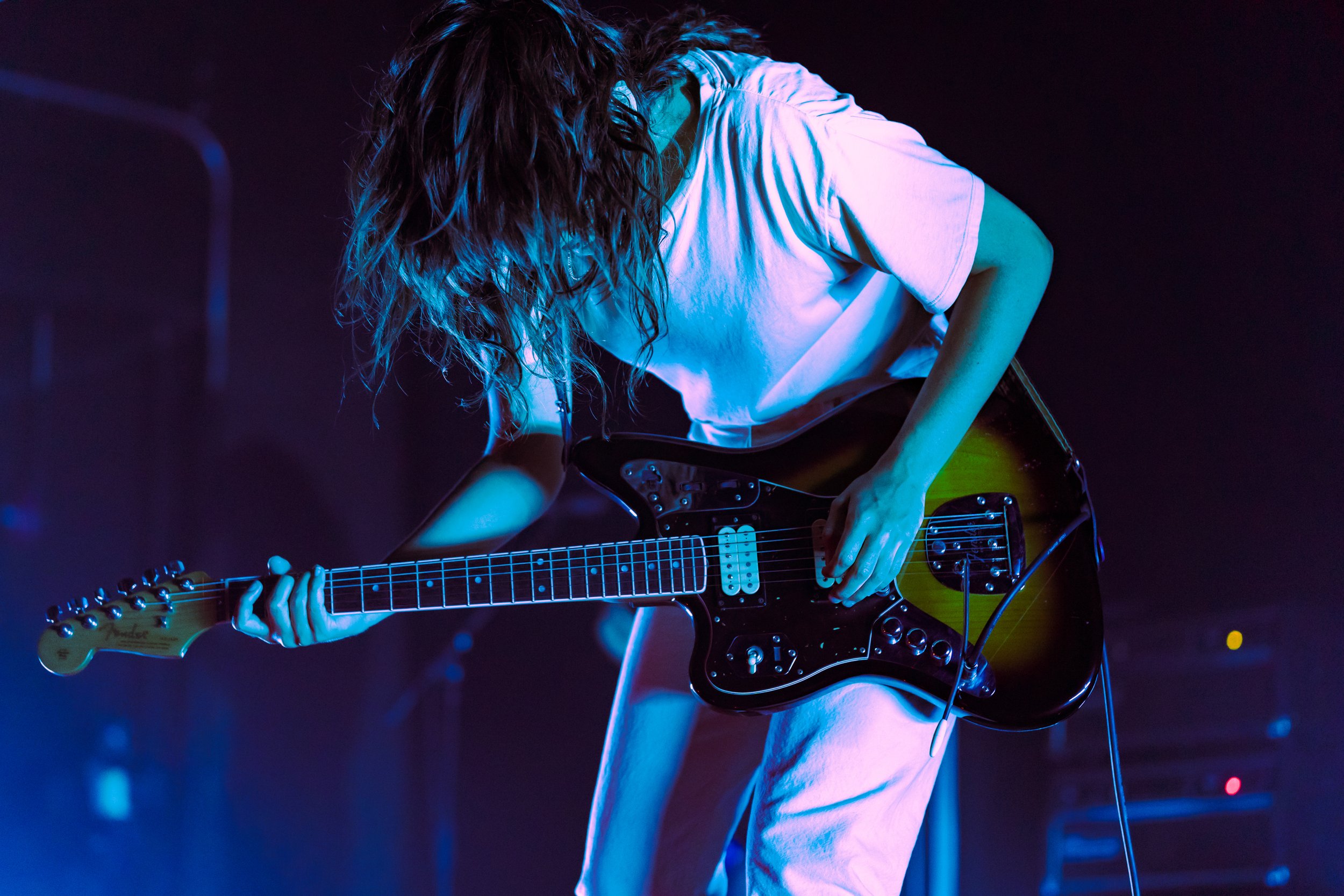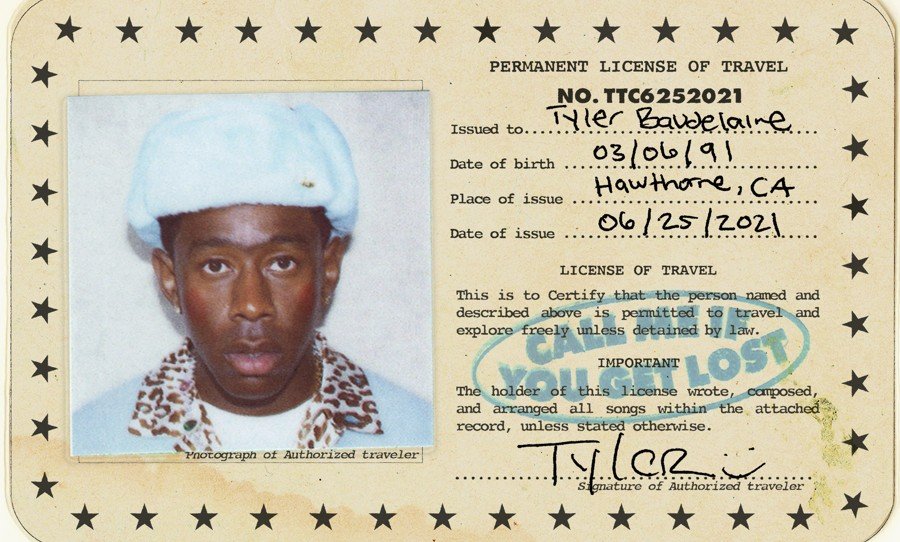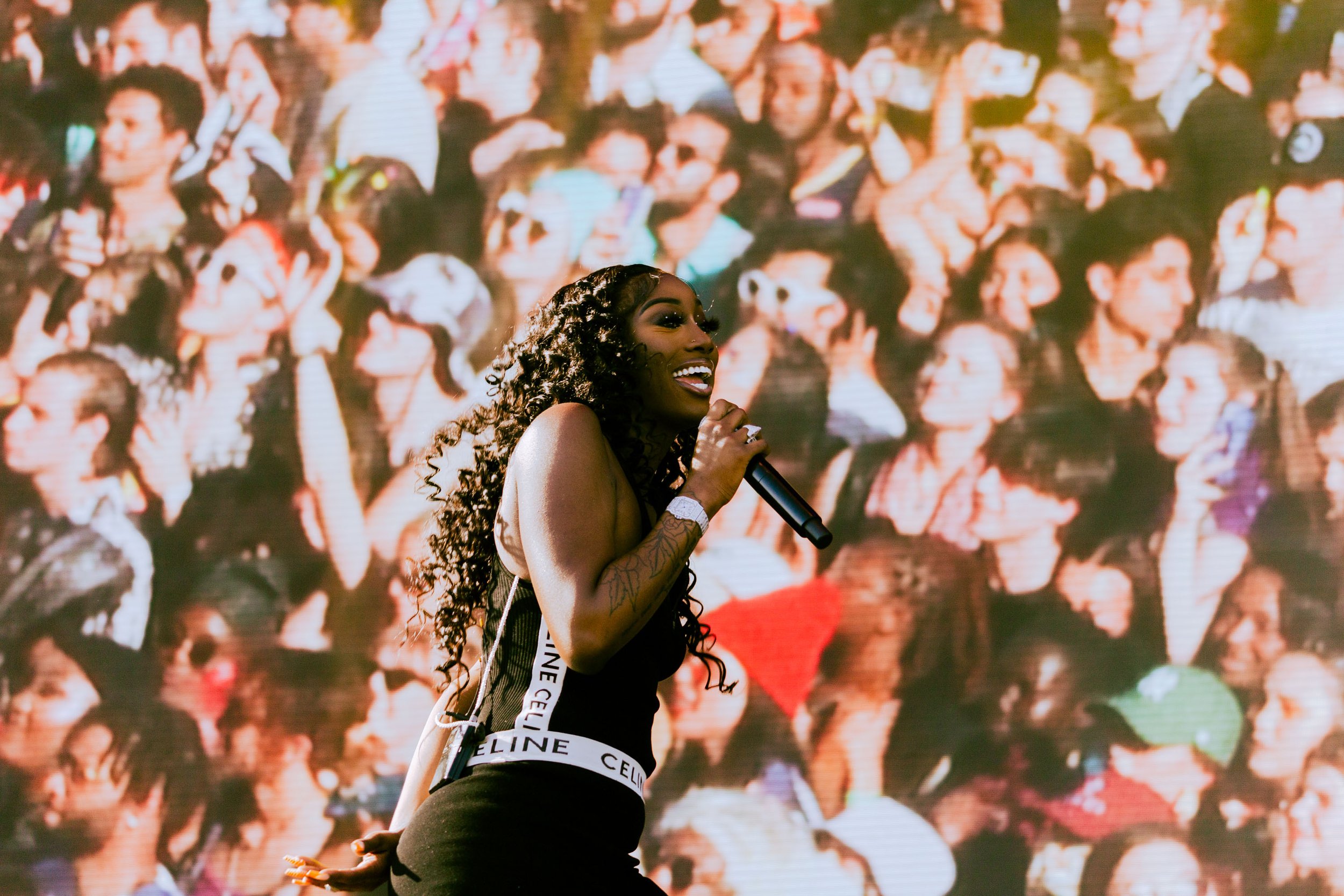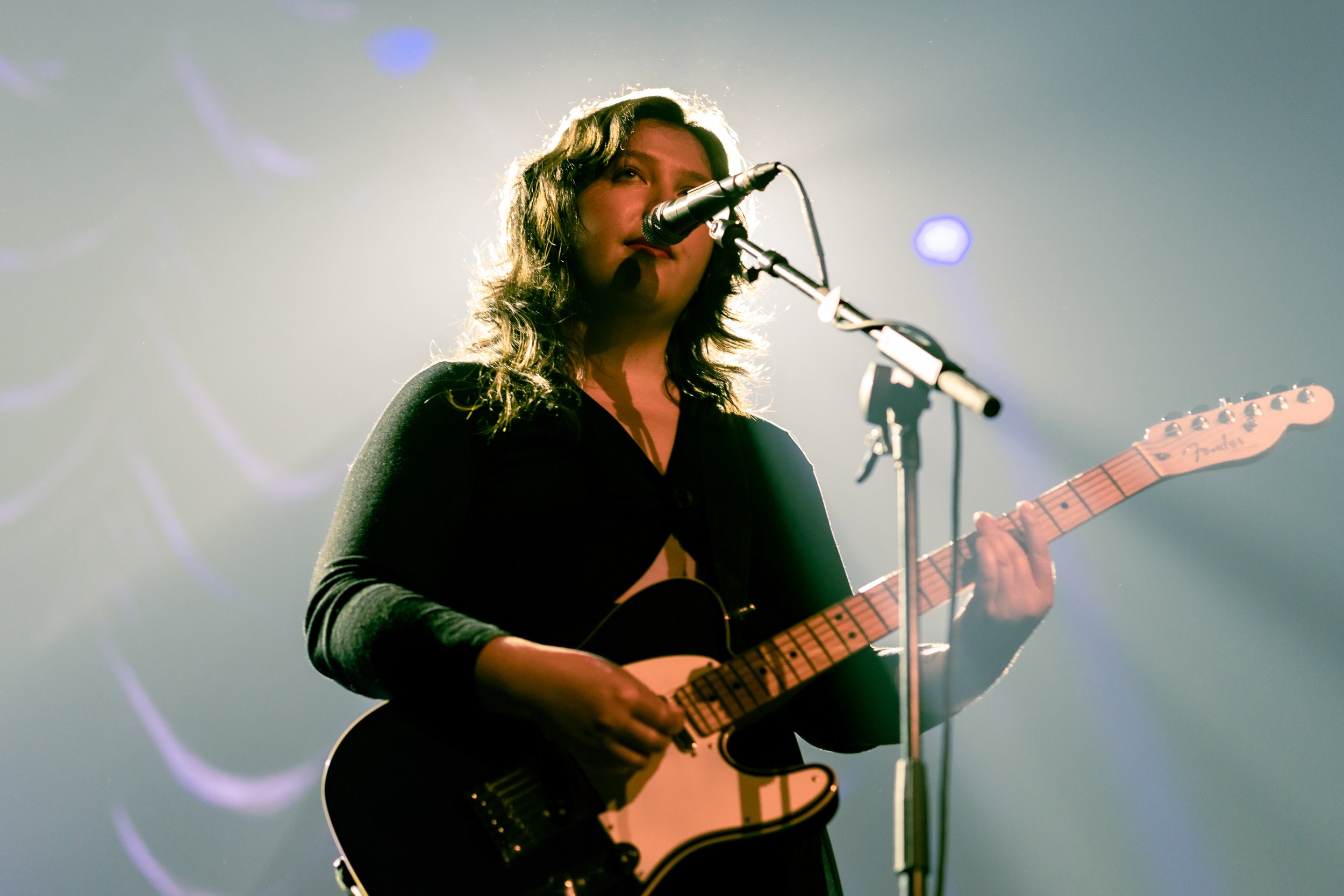Courtney Barnett Was Raw and Real at the Joy Theater
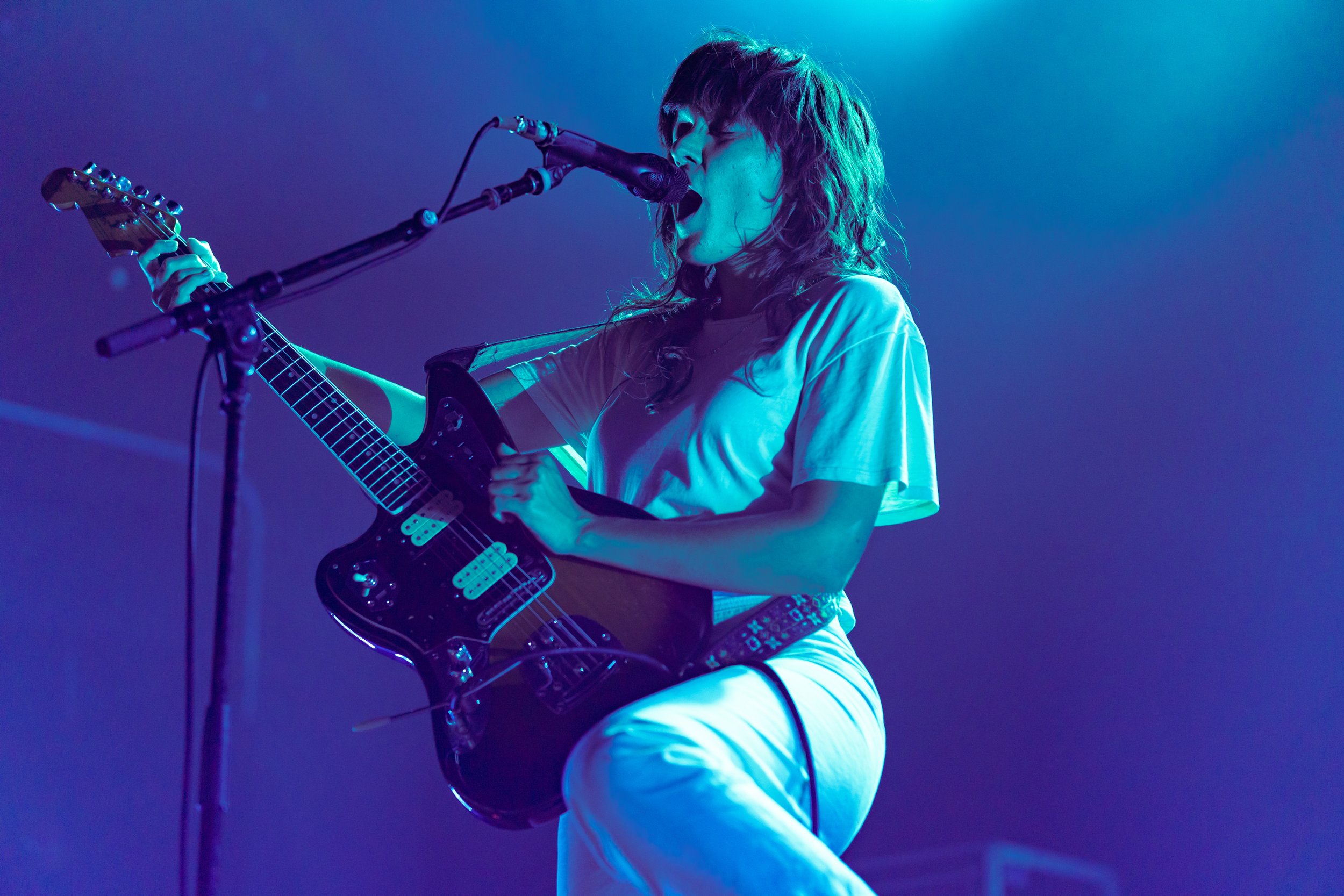
Courtney Barnett at the Joy Theater, by Victoria Conway
The Australian indie-rocker gives us permission to be our messiest selves
Courtney Barnett is a type of bad that can’t be replicated. She’s so loose that it’s genius. Barnett surrenders to the mundanity and pairs it with a seemingly apathetic delivery–raw voice, hands sprawled across her guitar. But the sound that comes out is an urgent feeling, a clamoring that starts in your chest and curls in your throat. It’s the scream you hold in as you drive through the suburbs, staring into the void that is a cul-de-sac, desperately searching for any sort of meaning to hold onto in this life that can feel endless.
Barnett hasn’t fully convinced herself that there is a point to all of this yet. You get the feeling that she’ll always be on the edge of a profound realization. A couple weeks ago, Barnett stood on the Joy Theater stage, Summer coming to an end, September settling in, and we felt it. The verge of an understanding. The tension of almost figuring something, anything out. Maybe that’s what brings her closer to us. Barnett isn’t pretentious, she’s not trying to prove anything, and she doesn’t have all the answers.
In 2015, Barnett released her debut record Sometimes I Sit and Think, and Sometimes I Just Sit to widespread critical acclaim. Every indie record store had a window display dedicated to it. NPR raved about it. Pitchfork dished out a coveted 8.6 rating, and considered the record “Best New Music.” Barnett was nominated for “Best New Artist” at the Grammy’s following its release. Sometimes I Sit wasn’t just a record that put her on the map. It was a record that made people realize Barnett saw and experienced the world differently.
That statement might just sound like the definition of an artist. Isn’t it their job to offer us a new perspective? What separates Barnett from the rest is what separated Dylan and Nirvana from the rest of popular music. The scrawled cover art of a chair on a checkered rug drawn by Barnett herself says it all. Her sound was raw. An unfiltered, live energy felt like water to an audience oversaturated in the pursuit of perfection. In the age of Kylie Jenner and the rise of social media influencers, here was someone who didn’t try so hard. Here was someone who made it feel okay to be ourselves.
Courtney Barnett at the Joy, by Victoria Conway
A stage door opened to the right, and a tall silhouette cut through the golden light that leaked through from the hallway. Barnett emerged, eyes on the ground, head bobbing to the beat of a tinny drum machine that played over the loudspeakers. Two instrumentalists followed her. Together, they were a three piece, and it’s all she needed. She plugged her cable into a dark electric guitar, a calm smile on her face. She wore an off-white t-shirt tucked into wide-leg pants, wisps of cut denim floating around her black Dr. Martens.
As the distorted, wailing chords of “Avant Gardener” jangled and thrummed, crust punks, Loyola kids, young twentysomethings in Carhartt overalls, and women with split dyed hair lost their goddamn minds. People with septum piercings and heavy silver chokers leaned against each other, the crowd feeling like a living, beating organism. A person in a black beret behind me bobbed up and down. Couples held each other as they yelled along to the words, “I’m having trouble breathing in / I’m having trouble breathing in.” A man on the barricade wearing an A24 t-shirt outstretched his arms to the casual, deadpan chaos. Barnett’s hands flailed to life across her guitar strings as she limply stuck a leg in the air like an apathetic modern dancer, while the whole crowd spoke-sung every tongue twisting, complicated lyric.
When Barnett shreds on her guitar, it’s as if she’s the only person in the room. She swings back and forth and head bangs. She slouches over the rugged sound that screams out. Her dark brown hair climbs into the air and takes form like a wildfire. And as she’s shredding on the Joy Theater stage, it becomes apparent that she is beautiful. Watching her tune the rest of the world out is a type of gorgeous our eyes are not used to seeing.
Courtney Barnett onstage at the Joy, by Victoria Conway
In an industry that assigns less value to women as they get older (meaning, past the age of 25) I can’t tell you how important Courtney Barnett is. She’s not rejecting the male gaze but is completely unaware of it. It’s irrelevant. It feels almost stupid to even talk about it. And as a young woman watching her perform, it is completely freeing to witness. She yells, she throws her voice over the crowd, she lets a line fall flat, and all of it's important. Here’s someone who is living proof that we can do it. That women in music can be raw and dirty. That we can be grungy without appealing to some sort of male heterosexual sex icon thirst.
All the while, she’s joyful, creating meaning out of the mundane, seeing life for all of its boring aspects, and still possessing a sliver of you that believes it’s worth it. Everyone in the crowd was screaming about it just to feel something, and almost losing their minds in the process. Barnett has her finger on a pulse that most people fail to find. And because she found it, she proved that we can too.
When Barnett plays her music, it’s less of a performance, and more of her showing us how she exists. For the song “Turning Green” off her latest record, Things Take Time, Take Time, she stood in front of the mic with a cowbell and a drumstick, eyes closed, singing, “I want you to tell me everything, tell me everything / I never seen you so happy.” It was reminiscent of “No Side To Fall In” by The Raincoats in that both songs give you the feeling that you are trying to make noise just to show that you are here. That you are not invisible. That you are fully real. That there is no other option but to be seen.
Courtney Barnett live at the Joy Theater, by Victoria Conway


